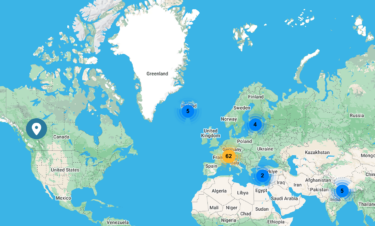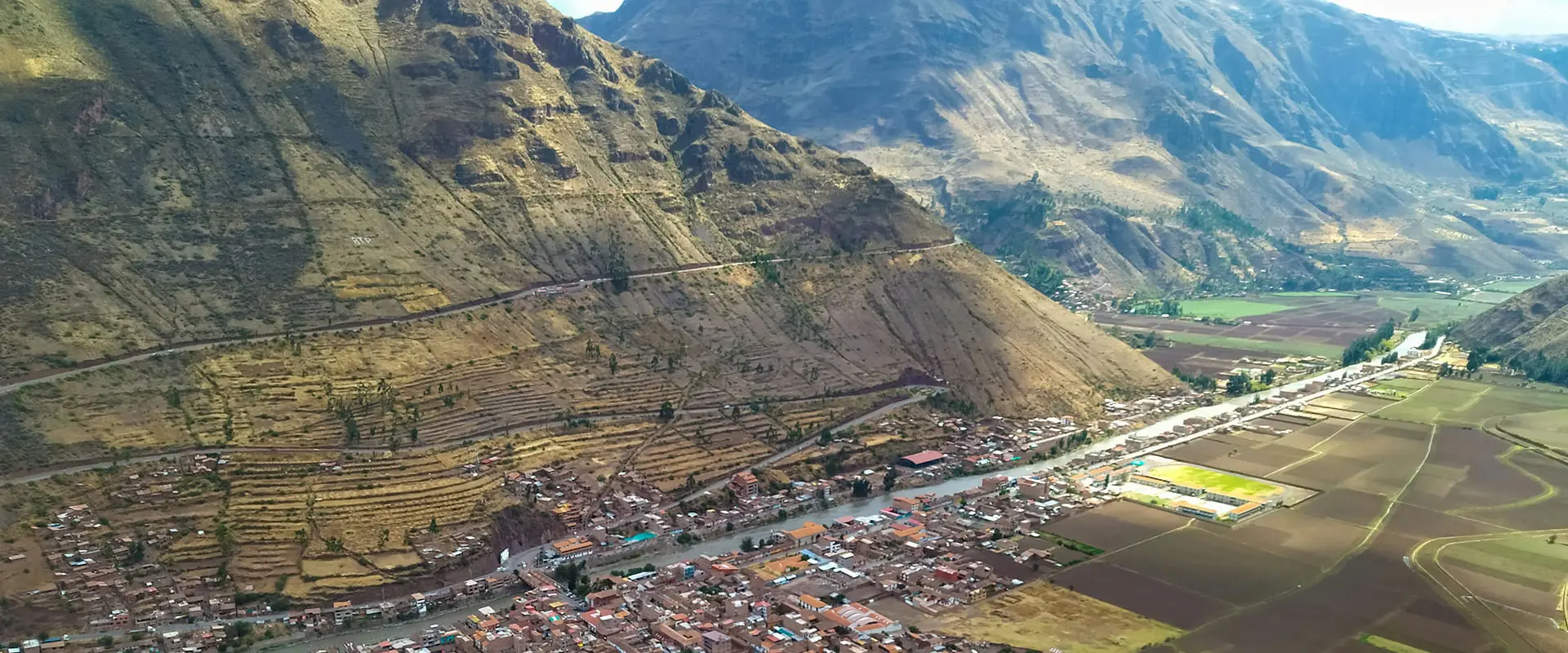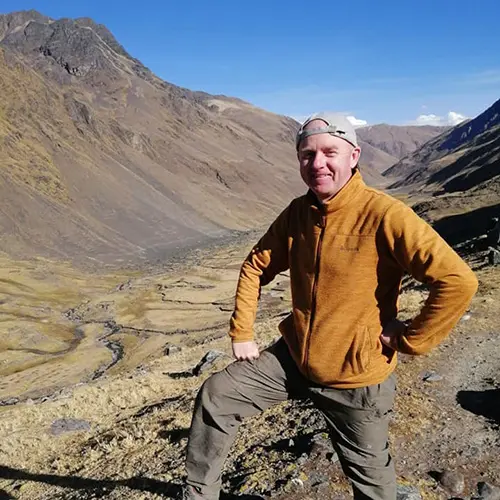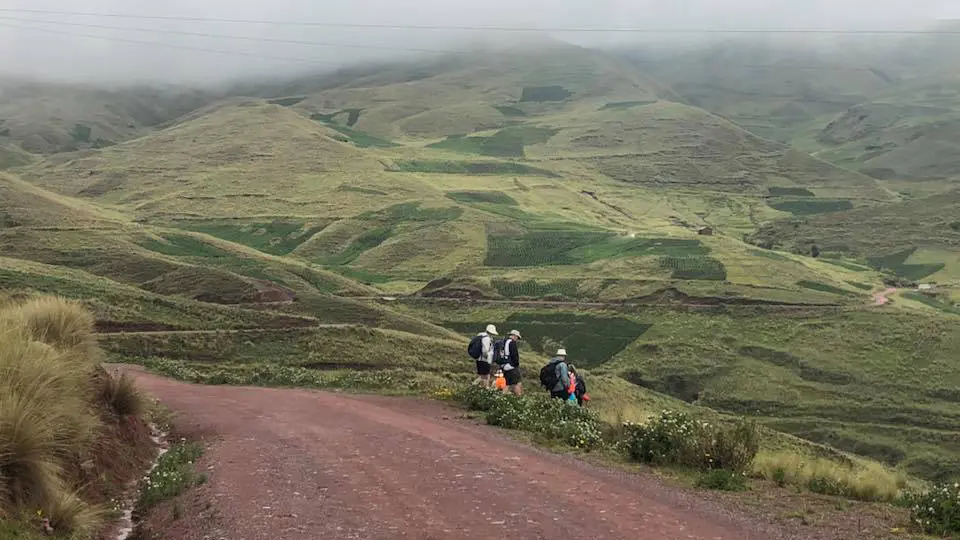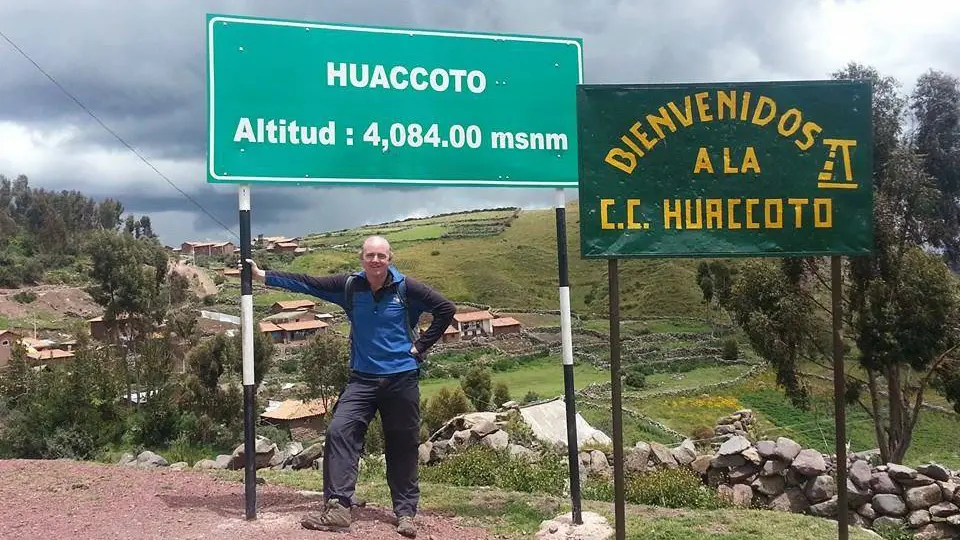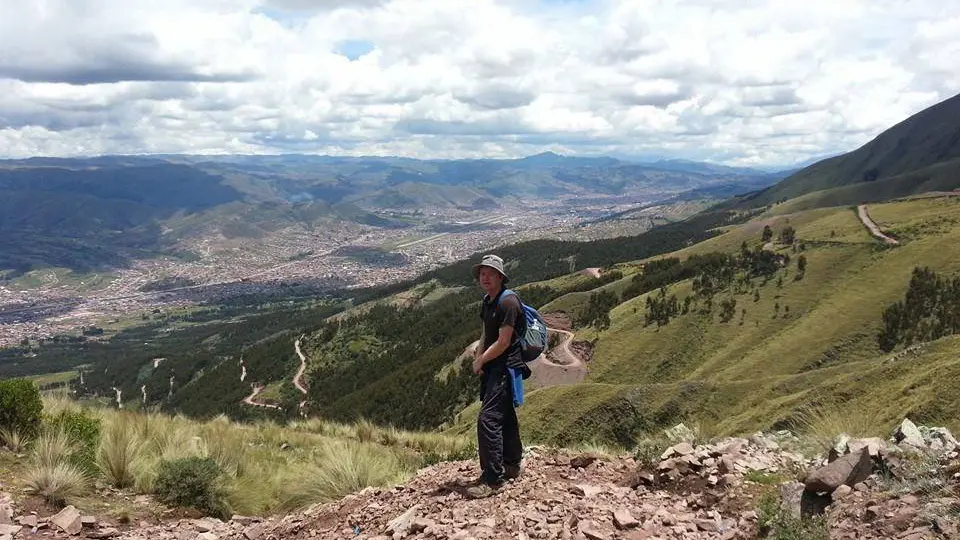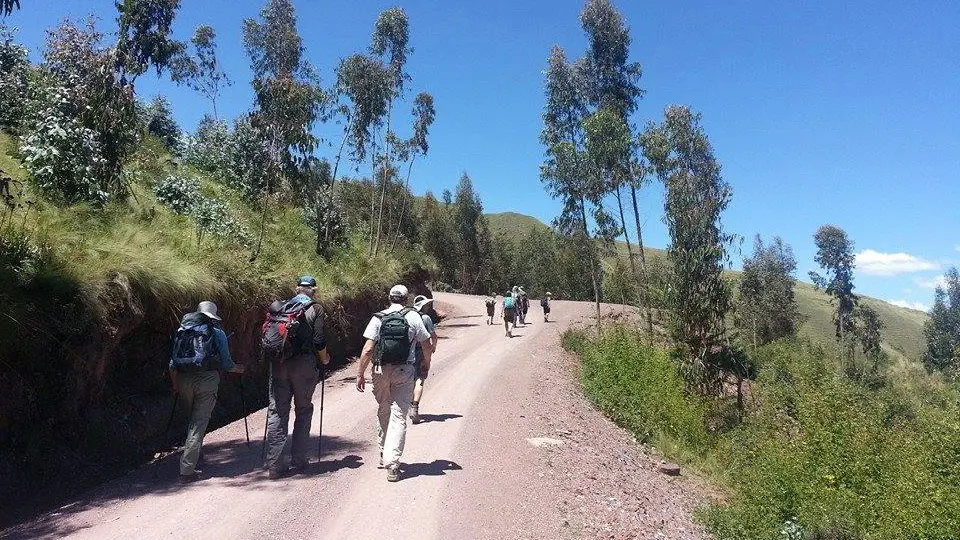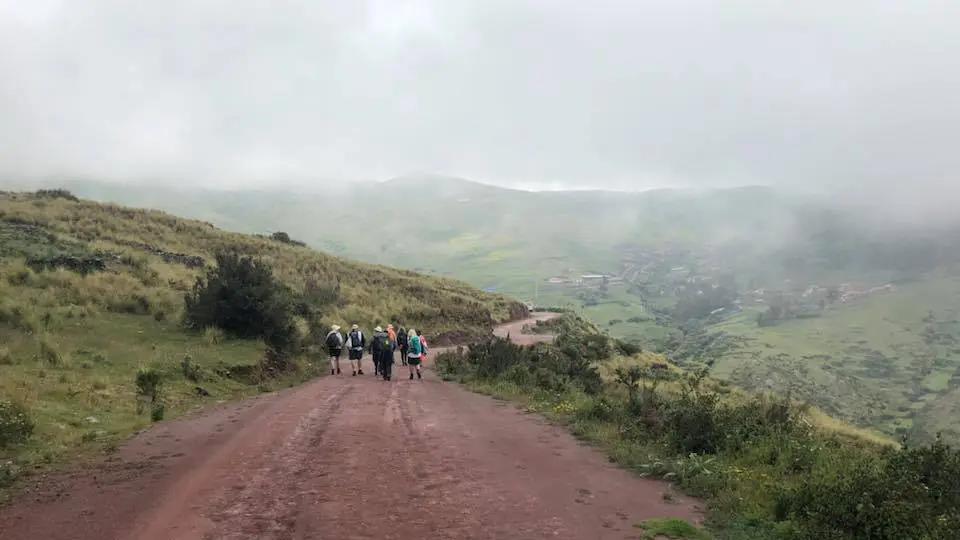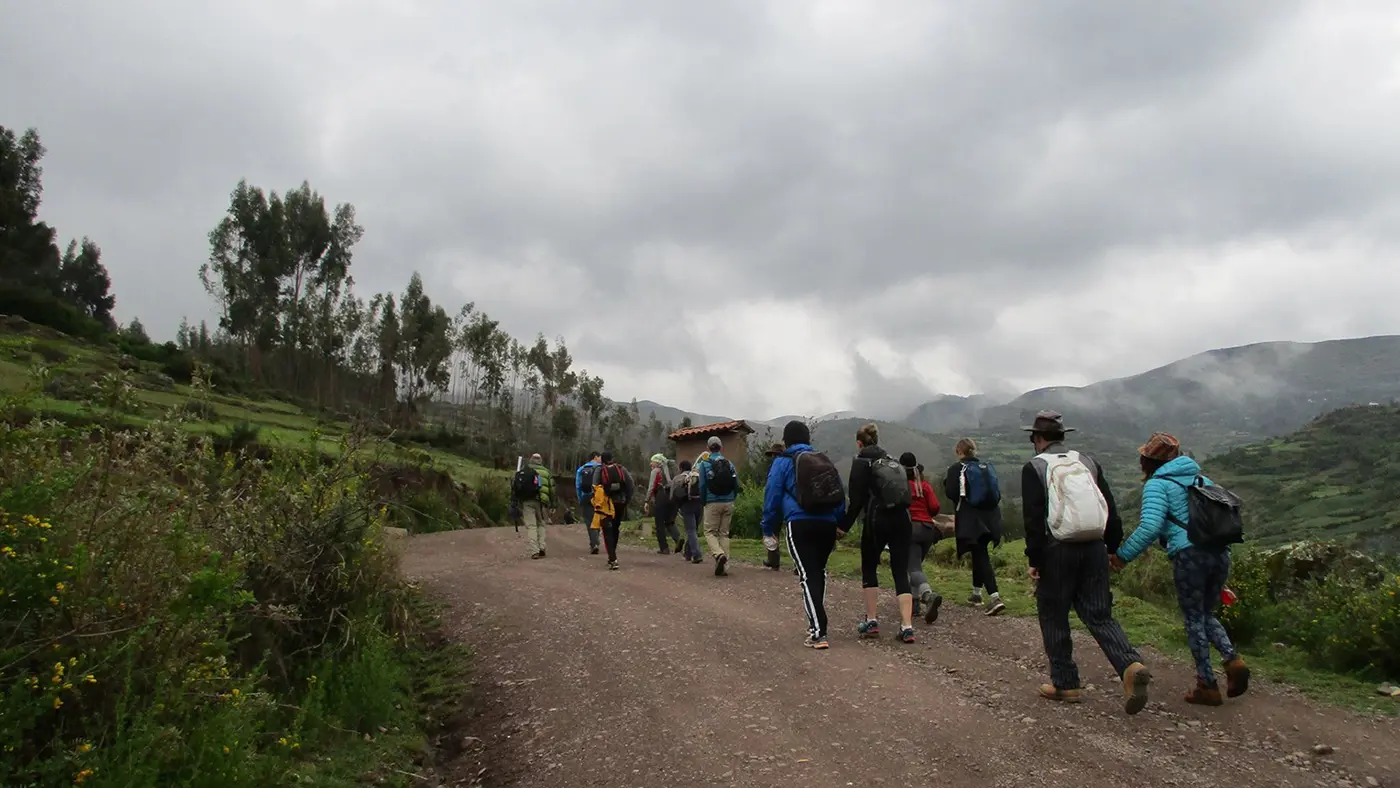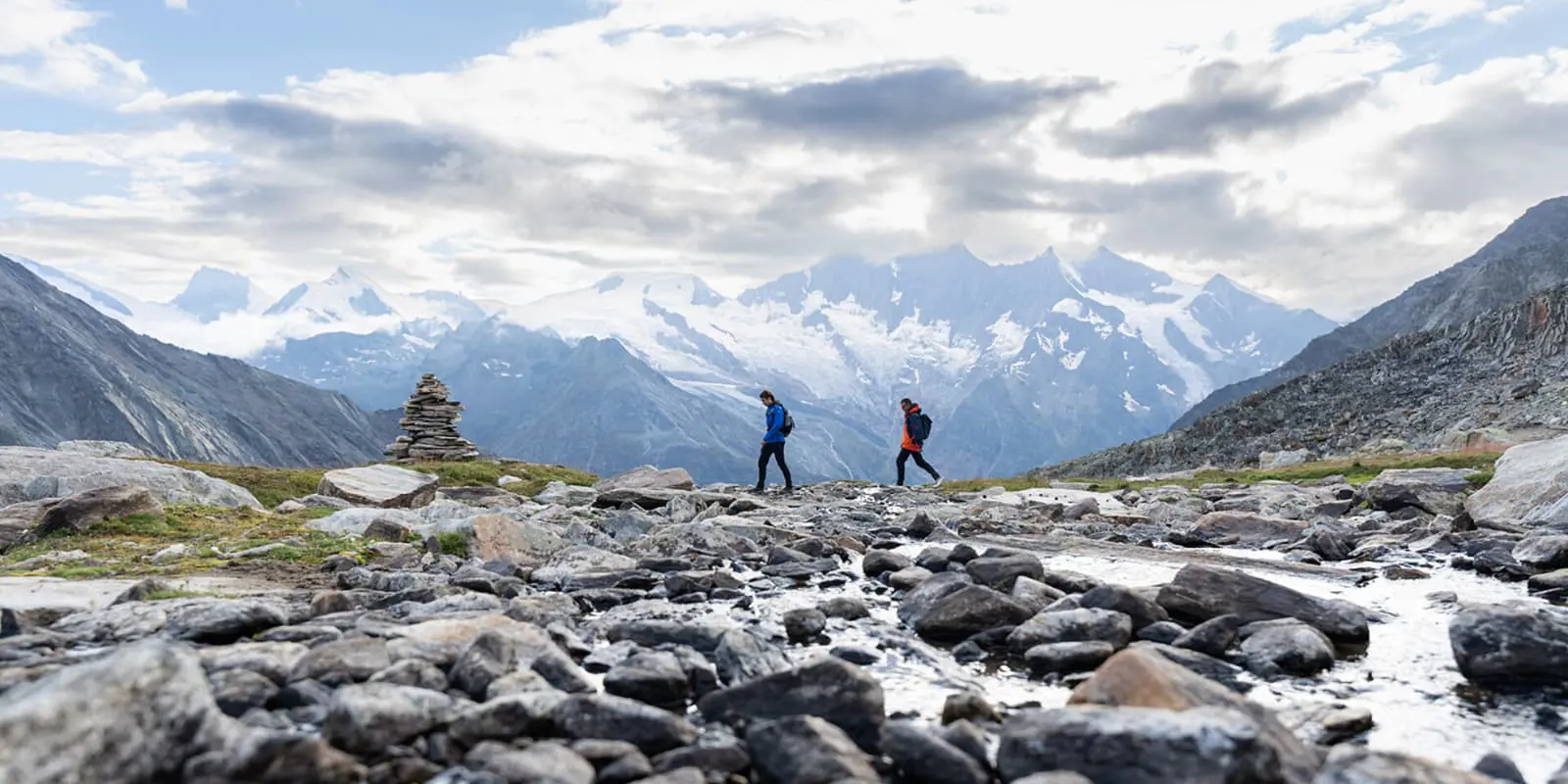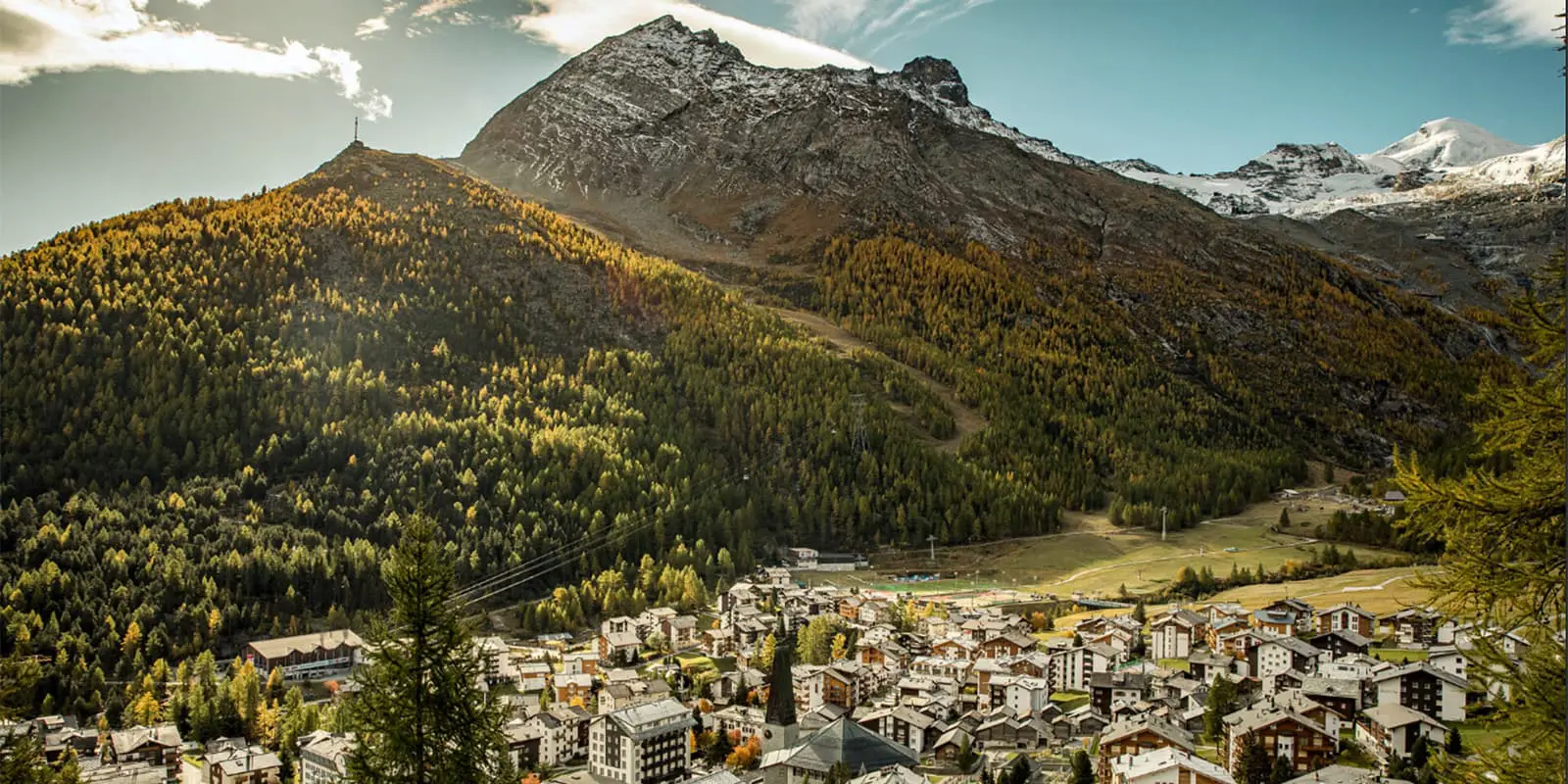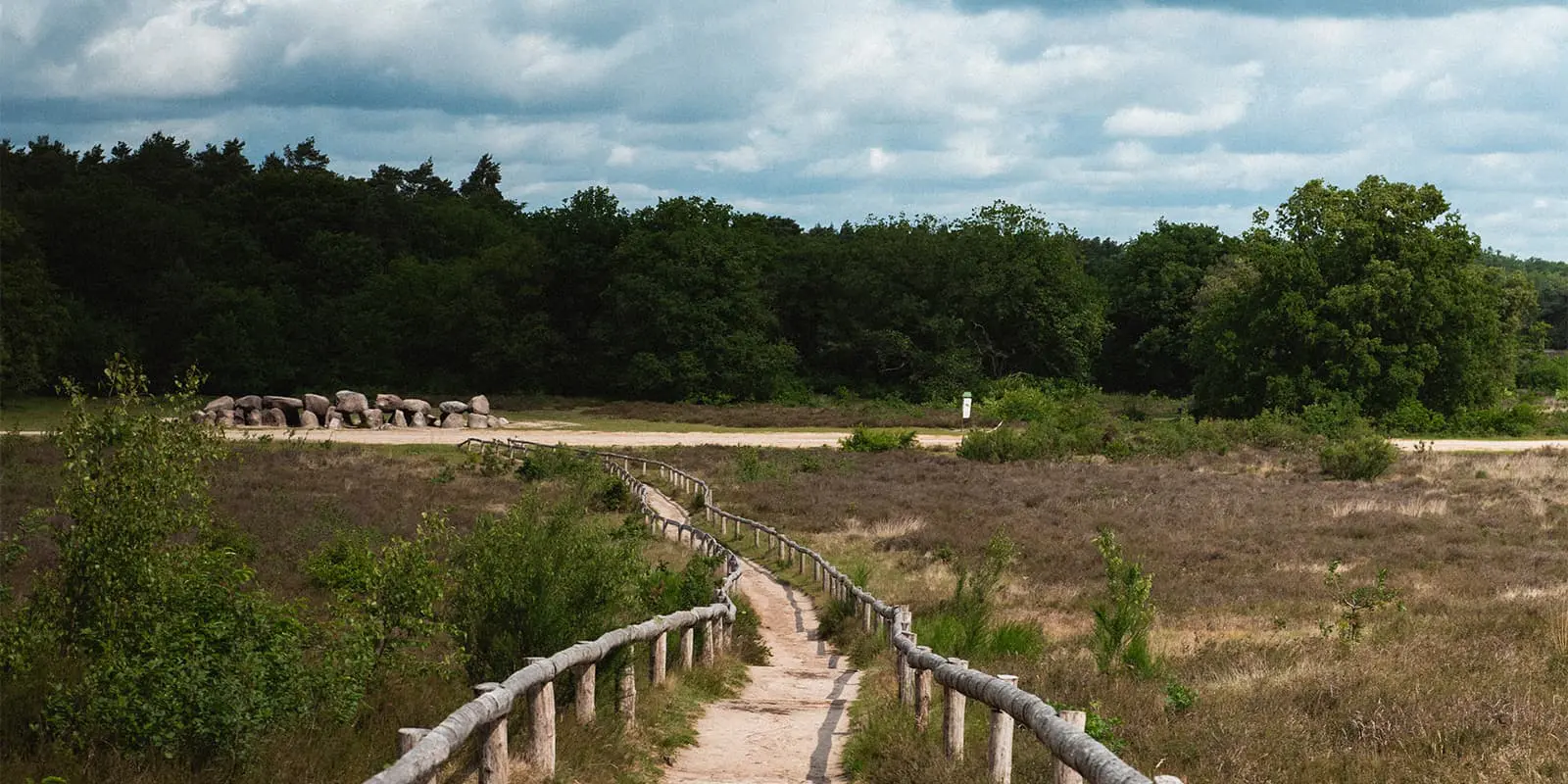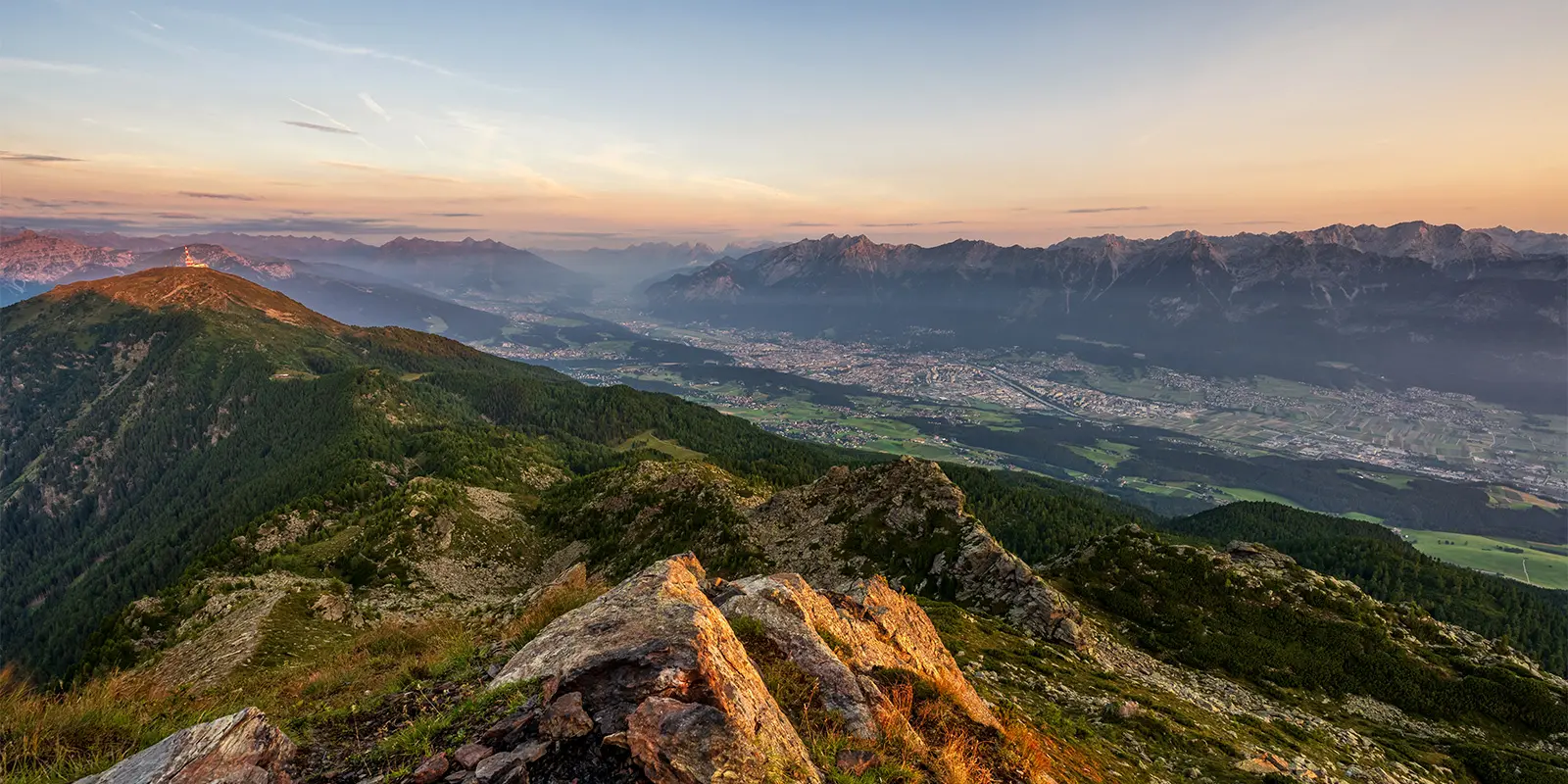Now that you’re in the village either via taxi or walking, you’ll need to begin the actual pilgrimage. Walk through the beginning of the village and veer left. You will see a small school down on your right-hand side. Continue uphill near a building that has a row of houses on your left. Then upwards passing some more rural mud-brick farmhouses to some steps that lead you up to the cross and viewpoint. You may be greeted by ducks and hens, and/or barked at by some local dogs. They are harmless but make a point of letting you know you are walking through their territory. 30-40 minutes later you have reached the cross and viewpoint.
Upon leaving the cross, note that slightly uphill to your left (back to the village) you will see a rough pathway that you can take that will lead you across a high plain. This obvious path is on undulating and rolling terrain that gradually ascends, but after 1 hour you will reach the highest point marked with an obvious picnic spot or place for setting up a camp. At this point, there is no more uphill. Another 5 minutes downhill (you may also note walking down on your left a nearby cave that may relate to the story and legend of Diego and Señor de Huanca) and you will make it to a small set of ruins and a fabulous look-out down to the Sacred Valley. Ideal to take a picnic here – don’t get too close to the edge though!
From here, you can even see the bright-red rooftop of the Señor de Huanca Church and your goal for this trek.
Walking down you have to follow the path (it has signs) initially in a ‘zig-zag’ formation and tread carefully as some switchbacks are quite steep and riddled with stones and rocks.
As you approach the church (within eye-sight almost the entire way) you will start making out a stone pathway some of which was originally constructed hundreds of years ago and when the pilgrimage first began.
Stopping lots to admire the views, the complete downhill section should take between 2-2.5 hours, but less if you are quick on your feet and don’t stop regularly.
Once you arrive at the grounds of the Sanctuary you pass through a Eucalyptus forest and some religious statues, and a few minutes further you have reached the church and your main goal of the trek
From here it is recommended to find a taxi (or call one) to take you to the pretty market town of Pisac where you can get some dinner, or continue with your next days of adventure. Taxis would typically cost around 25 soles with negotiation. There is a small collectivo minivan that turns up irregularly – this can take you to San Salvador (the nearest town for a couple of soles (less than a dollar) and from there you can find another collectivo (for 2 soles) by the bridge to take you to Pisac one direction or back to San Jeronimo (for 5 soles) in the other direction, then transfer from there to Cusco center.
From Pisac, you can get vans that will take you back to Cusco for 5 soles (1.5 USD) and about 50 minutes by road.


